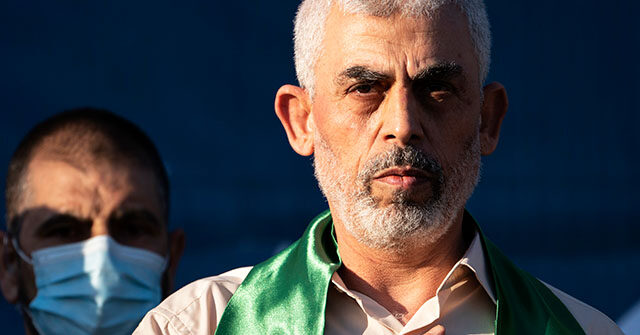In the complex landscape of the ongoing conflict between Israel and Hamas, the recent actions of Yahya Sinwar, the slain leader of Hamas and mastermind of the horrific October 7 attacks, illustrate a significant shift in the dynamics of hostilities. Reports indicate that Sinwar instructed his negotiators to reject potential hostage deals during crucial negotiations this past year. His rationale was that the increasing pressure from the Biden-Harris administration on Israel regarding the humanitarian crisis in Gaza would ultimately strengthen Hamas’s position while undermining Israel’s. This insight underscores a strategic miscalculation on the part of the Biden administration, whose simultaneous push for a peaceful resolution seemed to empower Hamas’s negotiating stance instead.
As mediators sought to foster dialogue and reach a ceasefire, Sinwar allegedly emphasized the need for Hamas’s political leadership based outside Gaza to resist concessions. He believed that substantial civilian casualties would generate global pressure on Israel, thus positioning Hamas favorably in negotiations. In Sinwar’s view, the changing priorities of the U.S. administration offered a powerful opportunity for Hamas to delay negotiations, allowing them to exploit existing political divisions and strengthen their bargaining position. According to a Wall Street Journal report, this tactic was indicative of a broader failure in the Biden administration’s approach that misjudged the implications of intensifying pressure on Israel, thereby emboldening Hamas and complicating any potential for a workable agreement.
Critics of the Biden-Harris administration quickly condemned its approach, arguing that it has inadvertently empowered Hamas rather than facilitating a peaceful resolution. Prominent figures expressed their frustration, highlighting that material support from previous administrations had significantly bolstered Iran and its proxies, thereby escalating tensions in the region. Political and media commentators attributed the failure of negotiations to Team Biden’s miscalculated strategy, suggesting that their pressure on Israel encouraged Hamas to dig in its heels for more extensive concessions. The comments pointed to a broader ideological divide, where progressive voices within the Democratic Party have increasingly challenged traditional U.S. support for Israel, complicating a clear foreign policy stance.
As the conflict unfolded, the Biden administration faced intensifying pressure from the progressive faction of the Democratic Party, which many believed encouraged Sinwar’s strategic stance. Figures like Rep. Ilhan Omar voiced urgent calls for a policy shift concerning Israel and Gaza, warning that maintaining the status quo could jeopardize the Democratic Party’s prospects during the upcoming elections. This tension reflects a delicate balancing act for the Biden administration, which sought to cater to both growing anti-Israel sentiment within its ranks and support for a longtime ally. The urgency for a solution is further amplified by the looming elections and changing dynamics within the party.
Despite ongoing challenges to eliminate Sinwar, Israeli forces ultimately succeeded in targeting him in October, following his key role in orchestrating the devastating October 7 attacks that resulted in nearly 1,200 fatalities and the taking of over 240 hostages. The situation highlights just how unpredictable and dangerous the geopolitical landscape has become under the Biden administration’s foreign policies. Concerns are mounting over whether a long-term resolution to the conflict is feasible, especially as Russia, China, and Iran seem to be taking advantage of the perceived weaknesses from U.S. leadership, raising fears of broader destabilization in the region.
Critics, including former officials like ex-Secretary of State Mike Pompeo, maintain that this era of U.S. foreign policy has emboldened adversaries and destabilized alliances that were previously strong under different administrations. The consequences of these policy shifts are evident on the ground, as emerging data suggests that Hamas, backed by Iranian support, may be underestimating the resolve of the U.S. and Israel in the face of ongoing provocations. Historians and analysts contend that the political climate in the U.S. is likely shifting towards a preference for tougher, more conservative leadership, which could create a backlash against perceived weaknesses in foreign policy. The situation remains critical, and the push for a cohesive U.S. stance may become increasingly urgent as tensions continue to intensify in the region.

